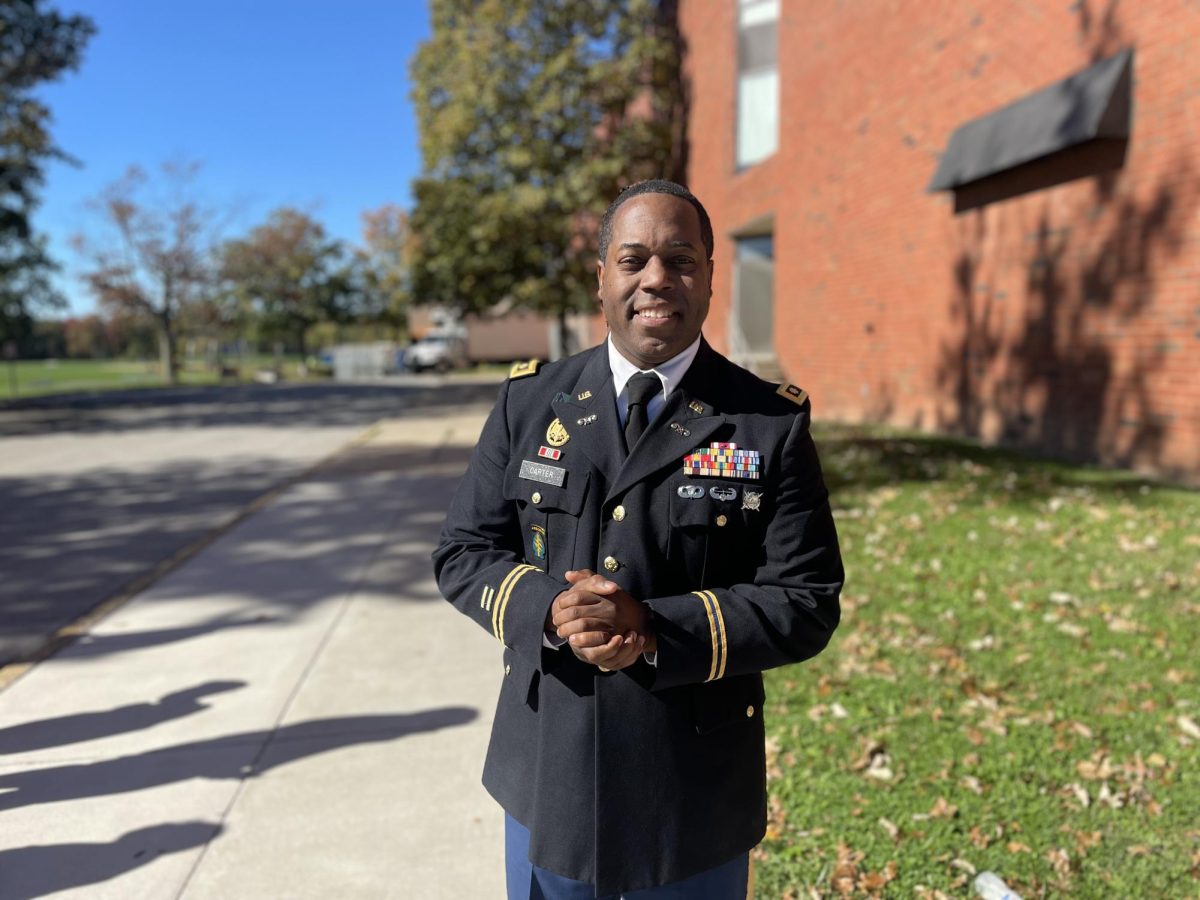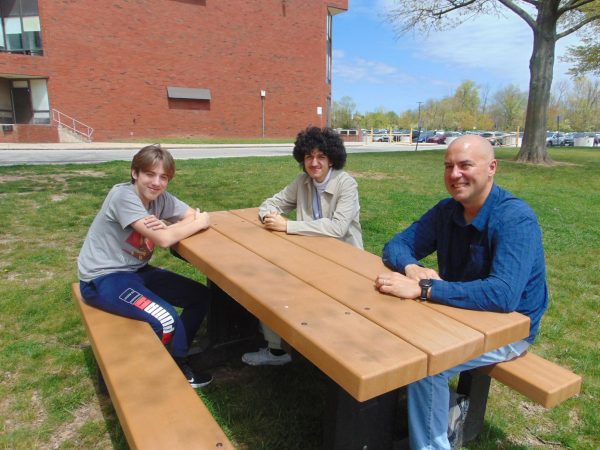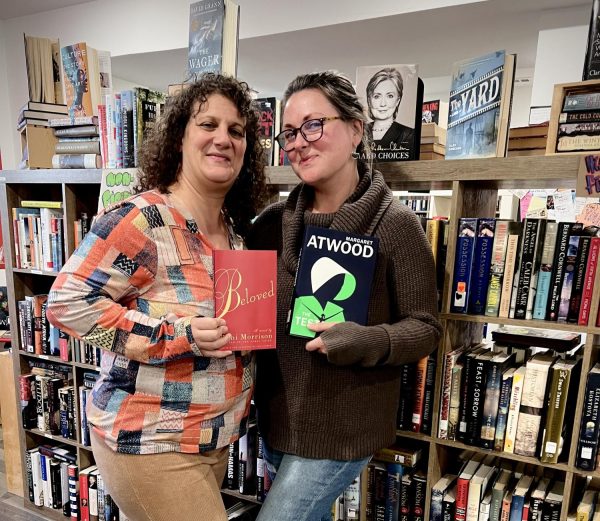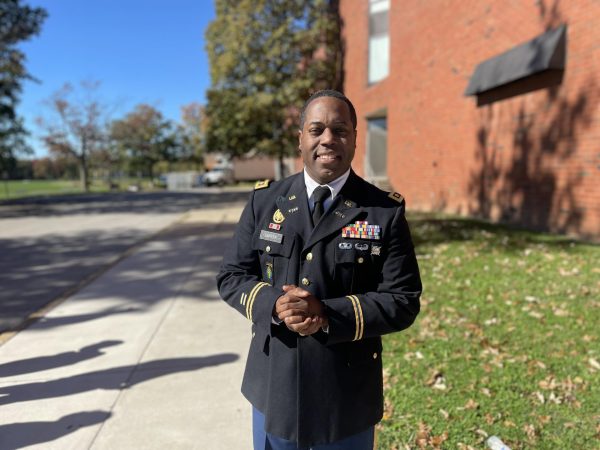Norristown Alumnus Henry Spills Secrets, Shares Advice on College Life
Alumni Spotlight
January 18, 2019

At this time of year, seniors are frantically getting together applications for college. Eric Henry, Norristown Area High School alumni, recommended Villanova University as a college to apply to. Henry talked about the transition into college as a freshman, gives advice, and Villanova’s diversity.
Henry graduated from Norristown in 2017 and is now a sophomore at the university. At Norristown, Henry was an academically gifted student. He took mostly AP and weighted honors classes throughout his high school career, so a high-end college had been his goal since he was a freshman in high school. Henry, however, did have trouble choosing which university to attend when both Drexel University and Villanova accepted his applications. The decision came down to cost, as Villanova offered scholarships because of both his academics and the diversity he could bring to the university. Even with the assertion that Villanova was accepting him with open arms, Henry was still nervous.
Every senior in high school can attest to the feeling that going to college is just as nerve-wracking as Henry says it was. He felt like it was like going to a foreign land. Henry realized, however, that every other freshman in college was going through the same thing. Henry’s advised new college freshman to bond with their roommates. Not only will you get along better with the person you live with, but you can meet even more people through them as well.
According to Henry, the tricky part of dorm life is living without your parents. After living with them and having them support you for eighteen years, it is hard not to expect them with you through every step. Fortunately, Henry really only had to figure out transportation. Most colleges don’t allow cars on campus, even if you can drive. Henry didn’t give up though and eventually figured out that public transportation would be his friend for a while. Henry says that becoming an adult was becoming independent.
“You realize how much of an adult you are,” Henry said when asked if being without his parents’ help ever helped him.
Though, college is hard. Henry cautioned that you will fail at first, especially in first classes you have. It happens to all college freshmen because high school teachers hold your hand and college professors don’t.
The real question, however, is this: will the education from Norristown open the doors many need to get into the college they want to get into? Some students of Norristown High worry that Norristown’s education system is not what it was when some of our parents or even our teachers went to Norristown. Attending a school that has experienced high-end position changes in administration and school board and what some believe to be a simplifying education, those students hear from others that they do not get the education they may have received thirty or forty years back.
Many students in the school worry they won’t be able to get into a good college, and people outside of Norristown especially often underestimate the education provided here.
As someone who is proud of his school, Henry doesn’t buy into that story. “They don’t know what they’re talking about because they don’t go here,” said Henry.
Henry went on to advise that taking AP and weighted honors classes will help you fill the gap between your education here and your college education. He also informed that your academic standing will get you where you need to go. Colleges will base your accomplishments off your transcript, not your school.
The AP classes, however, did not prepare Henry for the college way of life as he had thought it would. He said it was an “eye-opener” because he thought his AP classes had prepared him sufficiently. He claimed that the classes in freshman year are more than two times harder than the AP classes. It was a slap in the face for him, and Henry had to put in extra time studying for tests. Having been a great student here, he was not used to putting in that extra work, and admitted he was a bit cocky going into his classes. Henry forewarned that college classes are “independency-required,” and just to go in and do you best. It is hard to prepare for your first year, he said, but that’s how it is for every other freshman as well.
Life in college was not as he expected, however. Besides failing tests for the first time, it was also hard to find diversity at Villanova. Henry was lucky since his roommate had befriended him, and through his roommate, Henry found his friend group. He claimed he and his friends gravitated to each other because of their backgrounds. Henry he also pointed out that most of his friends are from Philadelphia, but he did not expect so little diversity at Villanova when he first arrived.
Henry thinks Villanova’s, along with that of other colleges and high schools, lack of diversity has to do with either cost or demographics. Public schools are usually only available to students who live in the area, and there is not much diversity in the neighborhood around the school. For private schools and colleges, the cost is typically too high for many. Henry figures the price is generally easier to swallow for white parents who benefit from financial privilege putting their children into college. He does believe that in order to increase diversity, schools like Villanova must find a tuition cost that is easier to manage for people who have been financially discriminated against throughout America’s history.
Many do still clamor to get into Villanova because of its academic and athletic reputation.
To those outside of Pennsylvania, Villanova may be best known for its men’s basketball team. This past year, the team won the NCAA Men’s Basketball National Championship, its second in three years. Henry recounts that the atmosphere was exciting, seeing as it is a basketball-central school. Even though the school’s acceptance rate is thirty-six percent, many want in on the glory. Henry said the school makes the team, so when the team wins, the students feel they won themselves.
When asked why he picked Villanova when the tuition cost is so high, Henry claimed it was because it offered him scholarships other schools did not.
“You may think schools are expensive, but they’re trying to increase diversity,” Henry advised.
Villanova’s diversity is different than what it is here in Norristown. Both schools treat people from different ethnicities fairly, but Villanova is just not as diverse as Norristown is. To address that, Villanova tries to make students aware of diversity’s importance and take it seriously,
Though the university is actively trying to increase diversity, the student interaction makes it a little difficult. As in high school, everyone has their own clique, or group, they keep to, and there is not much mingling between those groups. Different groups at Villanova, however, are trying to fix that. Henry spoke of a group called Lasso, a Latin-Latino based group. They held a block party for all races, ethnicities, and religions to come to and have fun. Henry feels this shows that the effort to spread diversity in the school is shared by the students and the ones in charge of admissions.
Despite its lack of diversity and high tuition costs, Henry does recommend Villanova to Norristown students. He acknowledges the university is trying and he hopes it gets to the level of diversity it is striving for. Seeing as University of Pennsylvania is close, Philly is thirty minutes away, and Norristown High is twenty minutes away, there should be more variety in ethnicity; though, the diversity is increasing each year. So those looking into colleges, especially high-end colleges, fret not. Villanova will appreciate what you have to bring to the school.
Henry doesn’t want any students to dismiss a college because of its cost. He talked about his time at Villanova so students here know they can succeed and are not limited to financial problems if they find schools that will help them. Your background and the cost are a small part in the school you choose. Don’t let those things affect what school you choose when it is your turn. College is for you to learn and experience.











